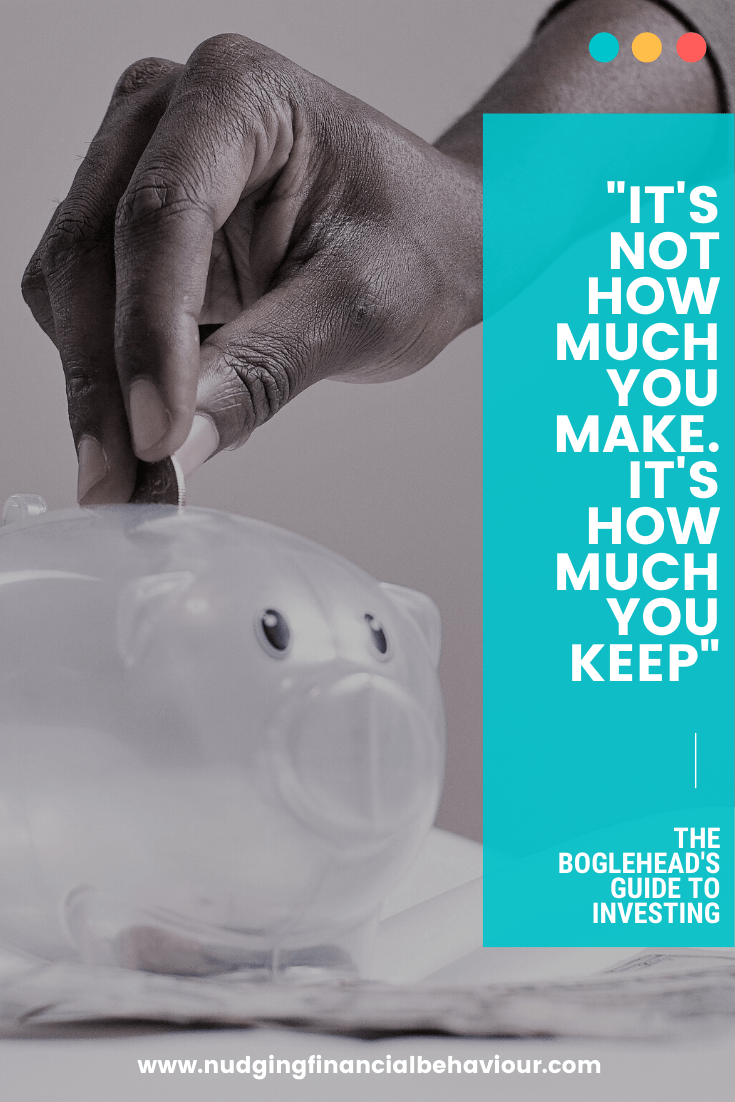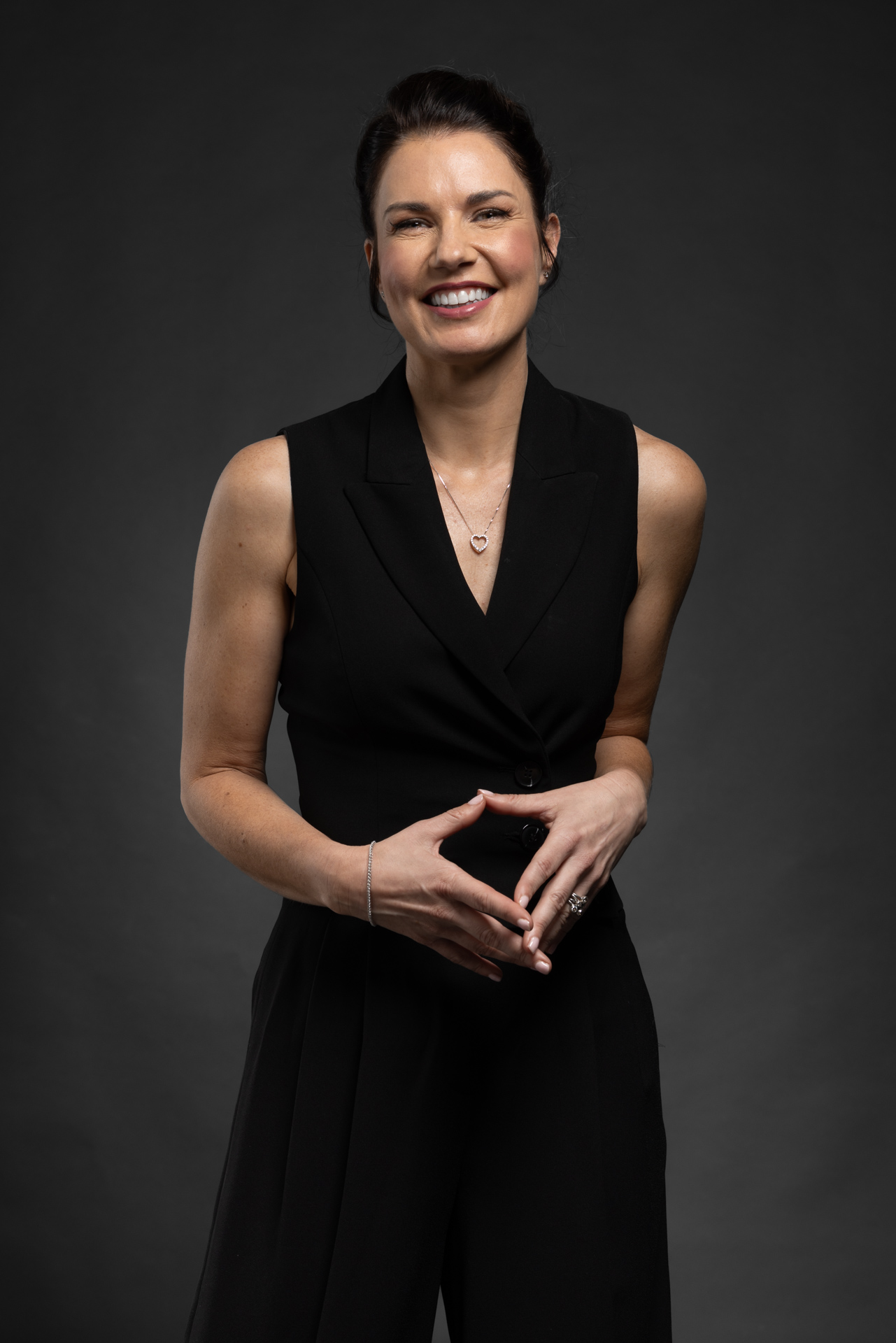As humans, with all our human emotions, we’re not the best when it comes to making good decisions around our spending habits. Freely available debt, credit cards, social pressure, and our own behaviours are just some of the reasons why most of us will find ourselves in financial trouble at some point. If you feel like you just can’t catch a break, you’re not alone. You’re human!
Most of the models that predict performance and earnings fail to factor in human nature. We are not robots. When the market crashes, we panic! When we see a sale, we buy. And as a result, we encounter financial problems more easily than we might predict.
There are many reasons why humans are not the best when it comes to managing their money.
If you can recognise any (if not all) of these in yourself, then you’ll be closer to understanding why you might feel like you can’t catch a break. But don’t worry, I’ll share some tips on how to overcome in due course.
A survey of adult South Africans found that many lacked basic financial literacy skills. Without basic financial literacy (such as understanding inflation, compound interest, time value of money) it is difficult to truly understand the impact of many of the other points I’ll be discussing in this article. To be clear, I’m not talking about understanding the mechanics of bonds and equity (useful, but not essential). I’m talking about the basics! Hence, this financial issue needed to be first on the list.

Those with lower financial knowledge are less likely to save. And the reason for that is that they don’t understand the long-term impact of the decisions they’re making today. They experience financial stress more easily and don’t know (or understand) how to take advantage of many mechanisms that help us to save money. Hence, we must be careful of assuming that someone who is in financial trouble after racking up a lot of debt was greedy or had no self-control. Sometimes that’s the case, but often they might just not have fully understood what they were doing (ignorance is bliss… for a while). And to add fuel to fire, financial service providers often take advantage of this fact by intentionally making financial information overly complicated.
Those with lower financial knowledge are less likely to save. And the reason for that is that they don’t understand the long-term impact of the decisions they’re making today. They experience financial stress more easily and don’t know (or understand) how to take advantage of many mechanisms that help us to save money. Hence, we must be careful of assuming that someone who is in financial trouble after racking up a lot of debt was greedy or had no self-control. Sometimes that’s the case, but often they might just not have fully understood what they were doing (ignorance is bliss… for a while). And to add fuel to fire, financial service providers often take advantage of this fact by intentionally making financial information overly complicated.

You are not alone. In South Africa, despite vast differences in socioeconomic characteristics amongst citizens, financial knowledge remains low for all. That includes those who are highly-educated, men and women. Research has repetitively called for greater financial education. Even at employers who are already engaged in best practices in terms of supporting employees’ financial planning. Such practices on their own are insufficient to achieve financial literacy. Financial education cannot be generic. It must be appropriately designed to achieve maximum impact for its target audience (I’m rambling a bit, but this is at the core of Nudging Financial Behaviour’s service offering so just give me a moment).
The percentage of our income that we spend on living expenses continues to increase. It doesn’t help that the price of things keeps rising (inflation) but there’s more to it. It’s called lifestyle creep. This refers to how our spend on non-essential items increases as our standard of living improves. Think back to when you earned significantly less than you currently do. Preferably to that time when you started working at your first job. Remember how much simpler your expenses were? Park the reality that you probably didn’t have (or had fewer) dependents and responsibilities. Think about your discretionary spend. Think about how you were using credit (if at all). Think about things that would have been spoils back then but are now the norm. That’s lifestyle creep for you.
As we get pay increases, promotions, bonuses etc. we tend to focus on increasing what we think is our quality of life (we think more things will make us happy) as opposed to saving more or paying down debt. By spending money we end up adding further complication and money problems to our lives. And sadly, these complications are often the root of deep financial trouble and anxiety when things don’t go the way we thought they would. Often, we feel like we can’t catch a break because we’ve allowed the wrong things to take over.
The reality of financial dependency be that our children, parents or other extended family members raises this burden. (The family aren’t a burden; the diminished savings and financial trouble is what becomes a burden). But these dynamics are ones we can’t (and don’t necessary want to) avoid. It just makes the awareness of overconsumption and financial difficulties more tenable.
Most people feel that they have no choice but to get into debt. You might already note the knock-on effect of these pitfalls. Overconsumption and lifestyle creep make us take on more debt than we can probably afford. It doesn’t help that debt is so freely available. And the nastier the debt, the easier it is to get.
I’ve heard the argument about financial gearing, debt levers and ROI. if you’re that clever with finance go ahead, do the risk analysis and place your bets. Personally, I like to sleep easy at night. I’ve run the models, I know what debt can unlock for you, but I still choose a predominately debt-free life (and my credit report and credit score is just fine, thank you).
Perhaps the graph below will help put things in context. Don’t focus on the movement in the two lines. Focus on the range of the y axis (the left axis). It ranges between 70% and 80%.
The two lines are showing household debt (red line) and debt-service cost (blue line) as a percentage of disposable income. Said differently – 70% – 80% of our disposable income goes towards debt!
There is a place for debt. Don’t get me wrong. But doesn’t it make you nervous to think that it’s potentially that much? What happens if the stability of your earnings changes? What happens if you can’t earn any income for a period? (This is why an emergency fund is so important.)
If you have debt, there are ways to manage it. Although debt collection agencies can help recover some of your outstanding balance, prevention is always preferable. Make sure that if you go down this route, you have a detailed repayment plan set up and stick to it to get rid of debt as quickly as possible, for instance, by prioritizing high-interest debts first and keeping track of expenses. Additionally, ensure that any agency you work with is legitimate, as there may be scams or fraudulent companies. Read up on reputable agency reviews, like Jefferson Capital Systems reviews, to make an informed decision.
If you combine our overconsumption and debt problems you eventually reach a point where you realise you have insufficient savings. The scary thing about this is that you often don’t realise it’s happening to you until it’s too late.
 It’s like putting sunblock on your face every day. If you applied sunblock every day from a young age, you’d protect your skin from harsh sun damage. Sun damage that you only really start to see when you’re decades older. When you’re older and see the damage to your skin it’s too late. While you might be able to prevent further sun damage, you can’t go back and undo the damage that has already been done.
It’s like putting sunblock on your face every day. If you applied sunblock every day from a young age, you’d protect your skin from harsh sun damage. Sun damage that you only really start to see when you’re decades older. When you’re older and see the damage to your skin it’s too late. While you might be able to prevent further sun damage, you can’t go back and undo the damage that has already been done.
There are two problems here, 1) you don’t save at all, or 2) you do save, but it might not be enough. And please – if you’re young and reading this and think this is something applicable to your later years, you’re wrong – it’s applicable from the moment you start earning any income. Financial trouble can creep up on you very easily.

It’s like putting sunblock on your face every day. If you applied sunblock every day from a young age, you’d protect your skin from harsh sun damage. Sun damage that you only really start to see when you’re decades older. When you’re older and see the damage to your skin it’s too late. While you might be able to prevent further sun damage, you can’t go back and undo the damage that has already been done.
There are two problems here, 1) you don’t save at all, or 2) you do save, but it might not be enough. And please – if you’re young and reading this and think this is something applicable to your later years, you’re wrong – it’s applicable from the moment you start earning any income. Financial trouble can creep up on you very easily.
Saving a little is better than saving nothing. So even if you feel like you don’t have much to spare, starting small is fine. The power of compound interest is incredible. It will reward you for your discipline.
If you are saving, consider whether it’s enough. For some of you, it might legitimately be the max you can save. For that – I commend you. For others – you know you’re victim to lifestyle creep, you know you spend too much and you know you could save more if you really had to.
It’s not about feeling like you can’t catch a break, it’s about making an active decision to spend less and save more. Share on XAccording to National Treasury, only 6% of South Africans will be able to replace their full income at retirement. Replacing your full income might not be the end goal but figure out what your goal is and assess whether you’ll get to that number. The 4% rule tells us that the goal is your monthly expenses multiplied by 300. (Stealthy Wealth does a nice little example on this.)
What I love about the 4% rule is that there are only two levers in your control: save more or spend less. If you can’t do the former, try the latter. Share on XDon’t reach your later years and realise that your total savings is not sufficient for your retirement.
As humans we are overconfident and react to events based on fear and greed. And a myriad of serious financial problems have arisen throughout time because of this.
Overconfidence is an interesting characteristic. It refers to how we overestimate our abilities (better-than-average effect). Put simply, if we believe that we are more knowledgeable or skillful in making decisions of a financial nature, we will be more willing to act on those decisions. (Men – listen up – because you struggle with this one the most!)
 The problem with overconfidence is that we’re not always right. Yes, you heard me. You’re not always right. And when we make financial decisions based on these overestimations, we can create financial trouble of great magnitude.
The problem with overconfidence is that we’re not always right. Yes, you heard me. You’re not always right. And when we make financial decisions based on these overestimations, we can create financial trouble of great magnitude.
Now let’s add fear and greed to this. Instead of formulating a clear financial plan for our lives, we tend to react and make decisions based on how we’re feeling and how the market is doing. Even those who do have some sort of financial plan aren’t immune to this. When the market crashes – it is totally normal to panic and want to move all your investments to cash. And when you hear about some scheme that triples your money in a month, it’s very tempting. It’s totally normal, albeit irrational.
The problem with overconfidence is that we’re not always right. Yes, you heard me. You’re not always right. And when we make financial decisions based on these overestimations, we can create financial trouble of great magnitude.
Now let’s add fear and greed to this. Instead of formulating a clear financial plan for our lives, we tend to react and make decisions based on how we’re feeling and how the market is doing. Even those who do have some sort of financial plan aren’t immune to this. When the market crashes – it is totally normal to panic and want to move all your investments to cash. And when you hear about some scheme that triples your money in a month, it’s very tempting. It’s totally normal, albeit irrational.

The key is to try and remain as rational as possible.
It’s easier said than done though. The reason we often ask how to fix financial problems is because it’s not a simple answer. Let me continue and explain why.
If you contact a financial advisor you’ll almost always do some kind of a risk-assessment questionnaire or similar with them. The reason for this is because your propensity to handle risk is arguably one of the most important determinants of your investment decisions.
Unfortunately, if you can’t handle the heat, well… the kitchen is where the money is made! Share on XWe do not like taking risk and exposing ourselves to anything that might result in short-term financial loss. But because of this, we miss out on long-term financial growth. It comes down to managing those emotions of ours again. Those emotions that are creating all these money troubles.
We lack self-control and procrastinate. This makes it difficult to avoid financial trouble by making the changes we need to regarding our spending behaviour.
There’s no better example than failed New Years’ Resolutions to explain this one. We have the greatest intentions. We all want to exercise more, eat healthy, stop smoking (pick your vice), but very few of us stick to these resolutions. Temptation is everywhere. And besides – you only live once, right? Yes, but then we keep feeling like we can’t catch a break.
The problem with procrastinating with saving and spending behaviour is that the later you change the less you gain. Share on XWhile you’ll sometimes hear me say that it’s never too late to start, you’ll also hear me say that the sooner you make those changes the better. Compounding!
We need to find the most tempting carrot and dangle it in front of our noses every day! How about finding a picture of what you dream your financial future should look like?
While you’ll sometimes hear me say that it’s never too late to start, you’ll also hear me say that the sooner you make those changes the better. Compounding!
We need to find the most tempting carrot and dangle it in front of our noses every day! How about finding a picture of what you dream your financial future should look like?
I’m not saying it’s easy. Having the self-control to say no to instant gratification is difficult. It takes decisive action and constant reminders of what that end goal is (insert carrot here).
The final pitfall. But the most promising one because it’s the one that is easily targeted, and if done correctly, can create a positive knock-on effect for all the other pitfalls.
A recent study showed that most people do not develop any plan to reach their savings goals. And for those that do, most do not stick to it (in fact, only 17% of respondents were able to stick to their retirement plans).
This needs to be a reality-check for us. We need to be budgeting and we need to have a savings plan. Don’t think full-blown retirement plan (yet). I’m talking about a plan to save for that holiday at the end of the year. A plan to pay off that debt. Start small.
You cannot go month to month and expect your financial situation to change. You need to plan to make that change.
A recent study showed that most people do not develop any plan to reach their savings goals. And for those that do, most do not stick to it (in fact, only 17% of respondents were able to stick to their retirement plans).
This needs to be a reality-check for us. We need to be budgeting and we need to have a savings plan. Don’t think full-blown retirement plan (yet). I’m talking about a plan to save for that holiday at the end of the year. A plan to pay off that debt. Start small.
You cannot go month to month and expect your financial situation to change. You need to plan to make that change.
There are a range of behavioural biases that influence our relationship with money. These are just the tip of the iceberg. And those of us who are more susceptible to these biases might need some outside help with our financial struggles. We’ll cover these options in due course.
Again, don’t be too hard on yourself. Despite some of the pitfalls being somewhat in our control, the behavioural things are often the reason as to why we feel like we can’t catch a break. We’re human! We have emotions. And we struggle to manage our emotions when it comes to money.
Want to pin this post for later?

Let us know in the comments below.
Let us know in the comments below.
I am passionate about helping people understand their behaviour with money and gently nudging them to spend less and save more. I have several academic journal publications on investor behaviour, financial literacy and personal finance, and perfectly understand the biases that influence how we manage our money. This blog is where I break down those ideas and share my thinking. I’ll try to cover relevant topics that my readers bring to my attention. Please read, share, and comment. That’s how we spread knowledge and help both ourselves and others to become in control of our financial situations.

Dr Gizelle Willows
PhD and NRF-rating in Behavioural Finance
[user_registration_form id=”8641″]
“Essentially, all models are wrong, but some are useful.” – George E.P. Box
Receive gentle nudges from us:

It’s so kind of you to share your expertise with us. Your blog post about financial trouble was both informative and enjoyable to read. Thank you for making the world a brighter place with your writing!